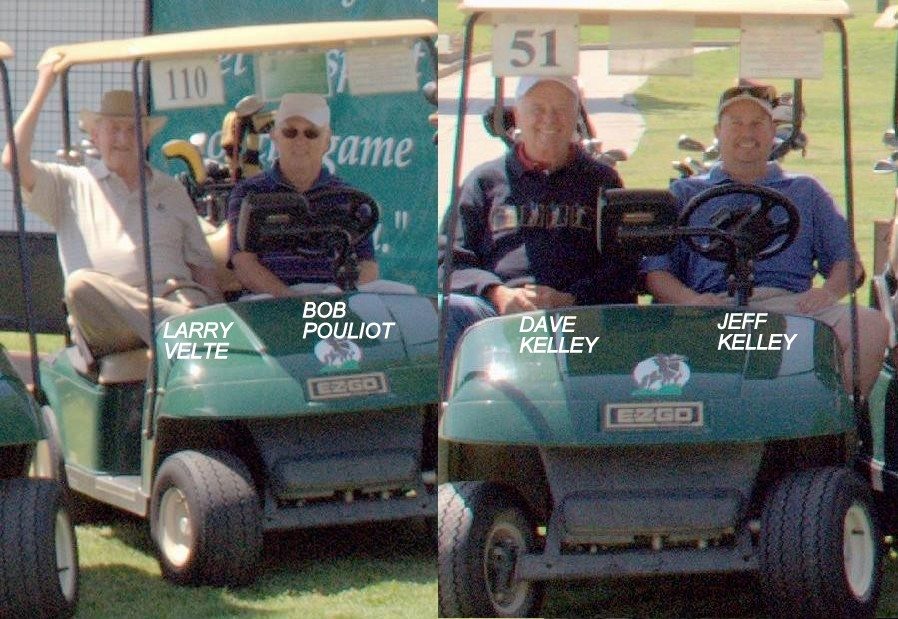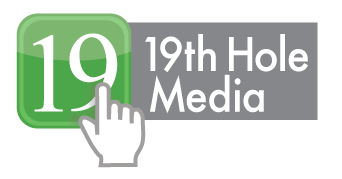Do golfers use social media? Read this excerpt from an article we wrote on Welborn Media
Originally posted at WelbornMedia.com by Zeb Welborn
I recently spoke with a General Manager at a golf course who said, “Most of our golfers are 55 and over . . . Do you expect me to believe that golfers over the age of 55 are using Facebook?”
The short answer is YES, golfers over the age of 55 are using Facebook on a regular and consistent basis. In fact, according to a Pew Internet study, more than 57% of Internet users between the ages of 50 and 64 are on social networking sites. To go further, 74% of people making more than $75,000 per year use social media sites and 74% of college graduates use social media sites.
The largest growing demographic on Facebook is the 50 and over crowd. As my 89 year-old grandmother, Lenore Welborn said, “I joined Facebook to keep in touch with my grandchildren. It’s how I keep tabs on them and know what they’re doing.” The over 55′ers began using Facebook to keep in touch with their grandchildren, but are now using Facebook to connect with their interests and are using social media to pursue their own hobbies.

Bob Pouliot and friends
One example is golfer Bob Pouliot who retired years ago and now plays golf almost every day of the week. He connected with our golf course through the Los Serranos Country Club Facebook page and became highly active. Bob contributed 12 articles to the 19th Hole Stories found on the Los Serranos Country Club blog. He encouraged his family and friends to visit each one of the stories he had written about playing golf at his home course. These stories helped to connect him more deeply with the golf course, connected new friends to the course, contributed to an active and vibrant community and increased sales as Bob and his friends began playing at Los Serranos Country Club more and more often.
The General Manager, in the before mentioned comment, is also explaining something very telling of the golf industry as a whole. Golfers are frequenting golf courses less and less often and the response seems to be to cater to the older generation as they are the ones who are playing golf the most right now, but if the golf industry is going to thrive that strategy needs to shift. We need to be thinking about new ways to expose new golfers to the game. We need to start reaching those people in the language they speak and today’s language is social media marketing.
Spend any time with someone under the age of 40 and you’ll understand why social media marketing makes so much sense. Advertise where the eyeballs are.
The younger generation will not be picking up a newspaper or flipping through a magazine, they will be looking online to find out about the things that interest them and if you’re not online you’re missing an opportunity.
As a 31-year old golfer who loves the game of golf, I know how important it is to change the way we reach new golfers . . . By being active on social media and the Internet we can increase play at golf courses all over the country . . . Getting each golf course to implement a social media strategy designed to promote, encourage and enable young golfers to take up the game should be the first and foremost responsibility of any community golf course. Teach the younger generation to love the game and you’ll have customers for life.
If you’re still not sure that social media or Facebook marketing is important for your golf course take a look at the Facebook ”Check-Ins” for your course (even if no one in your organization ever created a Facebook Page for it your golf course will still have one). The “Check-In” feature on Facebook is for Facebook users to indicate that they are currently at your golf course through their mobile phones which then is relayed to all of the family and friends who are connected with them through Facebook.
According to Marketland.com only 10% of Facebook users actively use the “Check-In” feature, so multiply the number of people you’ve had check in to your course since your Facebook page started by ten and that will give you a rough idea of how many golfers at your golf course use Facebook. The number will most certainly surprise you.
At our golf course, a nearby location with a similar name as the golf course severely limited our Facebook page “Check-Ins”, but within 18 months, our sample golf course had 3,202 people “Checking-In” at the golf course. Which, according to the 10% rule, means more than 32,020 Facebook users had physically visited this particular golf course.
![]()
Any way you slice it, golfer’s are using social media and more and more golfers will continue to use social media in the upcoming years. At golf courses, we have an amazing opportunity to use social media to develop strategies designed to build a better, more engaging, more interactive sport. Social media will help us to connect with users of all ages and help bring them into this game. While many people consider golf to be an individual sport, the most fun comes from the interactions that occur between people. As David Kramer, Senior Vice President at Los Serranos Country Club once told me, “Golf was the first form of social media,” and in a way, he’s right.
People golf because they can hang out with friends, tell stories and become part of a community. Social media can do that better than anything out there today. If you want your golf course to thrive, you need to build the game of golf, to build the game you need to increase exposure and there’s no better way to increase exposure than by using social media.
So . . . Do golfer’s use social media? According to the National Golf Foundation, 71% of golfers use Facebook, LinkedIn and Twitter . . . and that percentage is only getting higher.
If your golf course could use a boost with a stronger social media presence contact Zeb Welborn at (909) 973 – 9089 or by email Zeb@WelbornMedia.com. You can also sign up for our email newsletter which will provide additional tips and advice on how to increase your online presence by filling out our Welborn Social Media Newsletter Sign Up Form.
Share This Article!